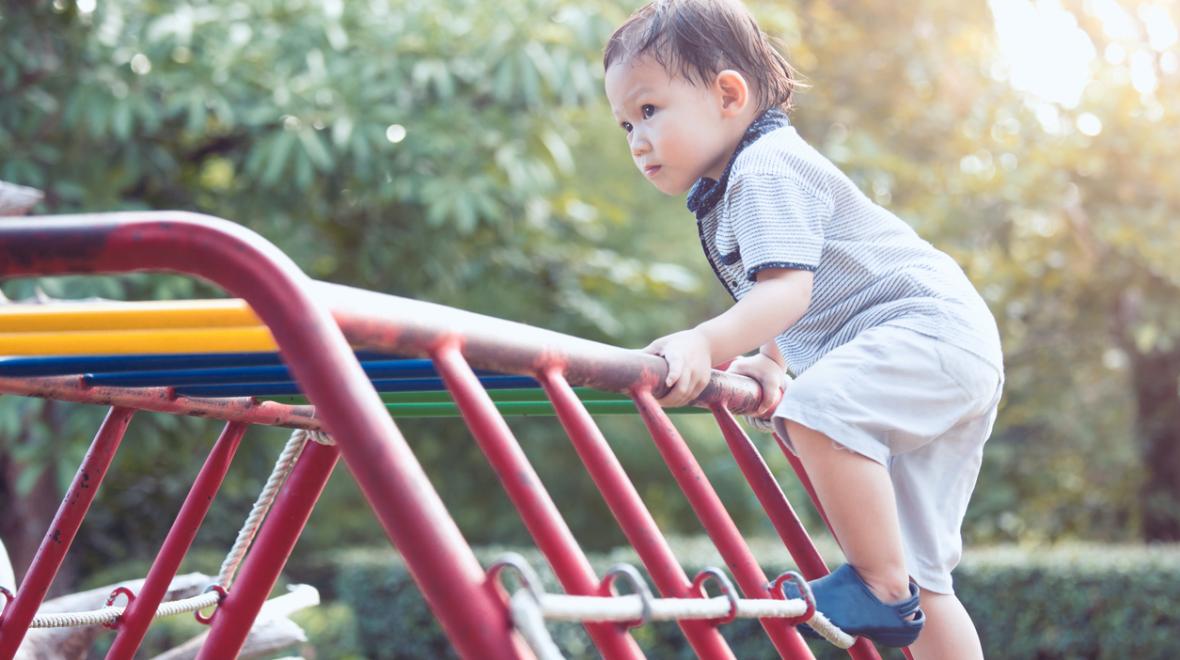
American parents have been socialized to emphasize activities that boost IQ scores, and most of us spend a great deal of time trying to raise intelligent children. But perhaps we've overcomplicated the formula. According to new research, raising children who achieve their goals is heavily impacted by having parents who model dedication to their own goals.
Julia Leonard, a developmental psychologist at the Massachusetts Institute of Technology in Cambridge, has shown that children as young as 15 months old are watching and emulating the examples their parents provide them.
After recruiting participants at the Boston Children's Museum, Leonard conducted a study aimed at highlighting the ways the behaviors children witness affect their development — specifically regarding short-term persistence (what you might think of as grit or persistence).
Leonard took an infant and its caregiver into a room equipped with toys and video cameras that captured the baby’s behavior. Facing the seated infant, Leonard got the child’s attention by trying to pull a plastic frog out of a container sealed with a concealed flap. Next, she played with a keychain full of colorful keys that could be removed only by opening a metal lever.
From there, Leonard established two groups of infants: those with whom she pretended to struggle with the toy and those with whom she solved the challenge with ease. Afterwards, she gave each group of infants a music box with a concealed switch and stepped outside to see what happened next.
The results were surprising. The infants who saw the task completed without struggle expected the task to be come easily and ultimately gave up. However, the infants who witnessed her own struggle hit the button roughly twice as many times.
Watching the struggle, Leonard says, teaches babies "that effort is worth it, and that they should try harder than they would in other contexts.” But what does this mean for us as parents? How can we prioritize interacting with our children in a way that teaches the importance of persistence?
Juli Fraga is a psychologist based in San Francisco. She says the study reinforces the old message of the value of hard work. “Modeling hard work for children is important because it teaches the value of grit and persistence. Even if a child is naturally gifted at a skill like music or sports, hard work accounts for a majority of success. In a fast-paced society, it's important to model the value of slow and persistent learning,” she says.
Grandma was right: Anything worth having is worth fighting for.
In other words, Grandma was right: Anything worth having is worth fighting for. But parents have to do more than say it; we have to show it. Without this modeling, children may lack the persistence required to complete the array of challenges they will face from infancy to adulthood.
Thankfully, modeling the importance of persistence and dedication isn’t as hard as it sounds. One of the easiest ways is by allowing kids to work through challenges on their own according, Fraga says. “Often parents may swoop in to solve problems without helping their kids problem-solve and reach conclusions on their own."
Parents like Jo Davis, a mother of six kids, have learned to teach dedication through action.
“When my now 17-year-old [child] Kara was in 5th grade, her class went on a bike ride. She wanted to go so bad, so I decided to go along. I found out on the ride that we were going 12 damn miles — longer than I had ever gone on a bike," she says. "Kara and I were the last people to get to the end point by an hour. The teacher said he thought we gave up and went home. I said no, we finish what we start in this family.”
It was far from easy, but for Jo, it sent the message she needed to send to her daughter. “I think seeing me struggle so hard and keep going gives my kids a frame of reference (if my mommy can bike 12 miles, I can finish reading this chapter in my book) and it shows them that 'don't give up attitude.'”
While mothers like Jo provide excellent examples, Fraga also emphasizes the importance of providing opportunities and resources for your children's advancement without hurting your own mental health.
“Parents of very young children tend to place this pressure on themselves, which can be unhealthy. They feel a pull to constantly focus on their kid's well-being by reading books, attending classes and reading blogs," she says. "Information is helpful, but when it makes one feel miserable or causes you to question your own parenting instincts, it can be hurtful. Spending time immersed in parenting education can also impact the amount of time you spend with your child and time spent with your kid: Observing and interacting with them is the best parenting education of all.”
She wants parents to model persistence but also be kind to ourselves. Parenting comes with plenty of challenges, and our children need to know that we are doing what we can to help them in a way that's healthy for all parties involved.
As parents, we often work hard to prevent our children from struggling. But these experts say a reasonable level of struggle is helpful for everyone — especially developing children. Perhaps the best thing we can do as parents is to model that struggle and persistence in front of them as opposed to trying to protect them from life's challenges.











